
12 Jul, 2023 in Community Relations
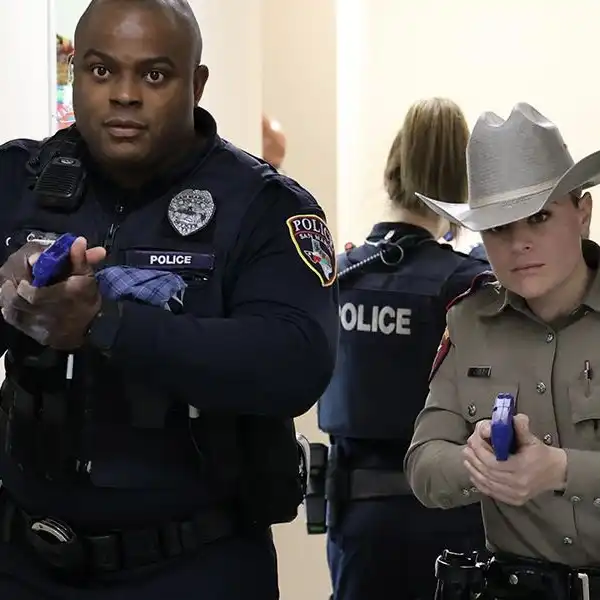
Two of Texas' finest practicing techniques taught in ALERRT Level 1 active shooter response training.
The Advanced Law Enforcement Rapid Response Training (ALERRT) is a program designed to provide law enforcement officers with the skills and knowledge needed to effectively respond to emergency situations involving active shooters. Initiated in 2002 at Texas State University, ALERRT has become a national standard for active shooter response training.
The core principle of ALERRT is to train law enforcement officers to rapidly respond to dangerous situations, minimize casualties, and neutralize threats as quickly as possible. The training encompasses a wide range of topics including tactical skills, medical interventions, and incident management strategies.
The significance of ALERRT in law enforcement cannot be understated. It equips officers with the necessary skills to handle high-stress, high-risk scenarios, thereby increasing the safety of both the officers and the communities they serve. Its research-based approach ensures that the training is continually updated with the latest tactics and strategies, making it an invaluable resource in modern law enforcement.
In a world where active shooter incidents are sadly becoming more frequent, the ALERRT program stands as a pivotal element in law enforcement's ability to protect and serve their communities.
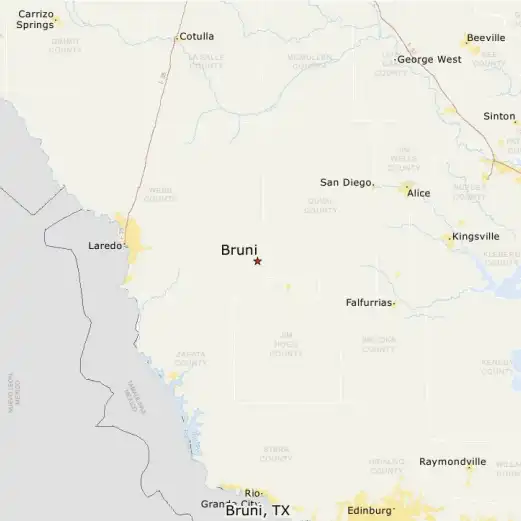
Bruni can be seen marked on this map with a small red star. It is located halfway between Laredo and Falfurrias.
Bruni, Texas is a small, rural town nestled in Webb County, located approximately fifty miles southeast of Laredo on State Highway 359. Known for its welcoming atmosphere and the tight-knit community, Bruni offers residents a tranquil, country lifestyle.
The town was likely first occupied around 1860 by Mexican settlers and later named after Antonio Bruni, an Italian immigrant who arrived in the area circa 1877. Bruni's contributions to the town were significant, owning a general store and a ranch, and helping establish the town as a station on the Texas-Mexican Railway around 1881.
As per the 2010 census, the population of Bruni was 379, but despite its small size, the community is vibrant and active. The residents take pride in their rural identity and enjoy the peace and quiet that comes with living away from bustling city life.
Bruni is also home to several law enforcement agencies that work diligently to maintain peace and order in the area. These agencies are often involved in initiatives like the Advanced Law Enforcement Rapid Response Training (ALERRT), which enhances their readiness and response capabilities to various emergency situations.
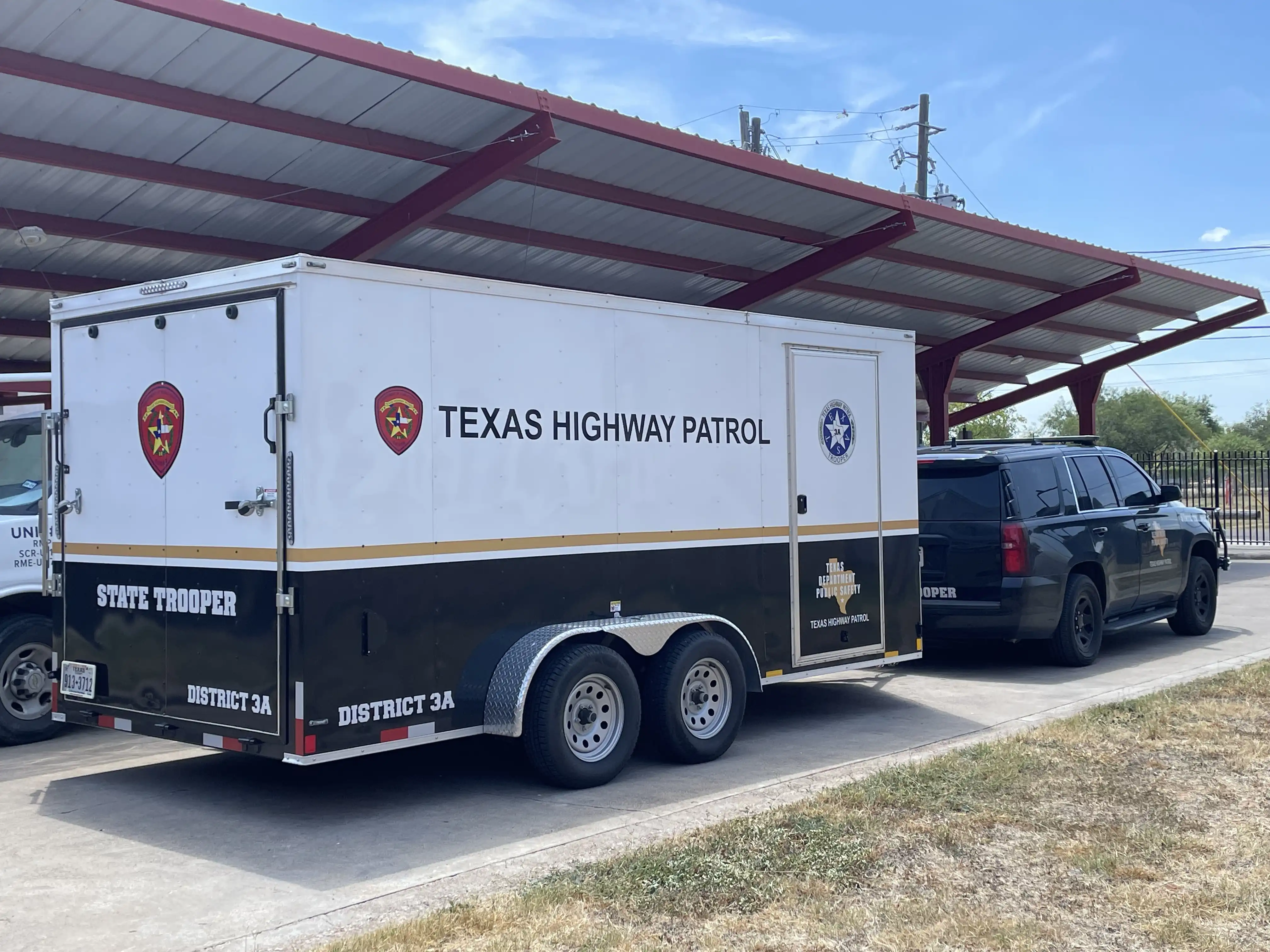
Rural areas like Bruni, Texas, present unique challenges for law enforcement. These challenges include geographical distances, limited resources, and a lack of specialized training opportunities. As such, rural law enforcement agencies often face difficulties in effectively responding to complex situations like active shooter incidents or large-scale emergencies.
Geographically, rural areas are typically vast and spread out, making it more challenging for law enforcement officers to respond swiftly to emergencies. The longer response times can lead to increased risks for both the victims and the officers involved.
Limited resources are another key challenge in rural law enforcement. Smaller budgets and fewer personnel can mean that rural law enforcement agencies may not have access to the same level of training, equipment, or support as their urban counterparts. This lack of resources can affect the agency's overall effectiveness and efficiency.
Moreover, opportunities for specialized training like the Advanced Law Enforcement Rapid Response Training (ALERRT) may not be readily available in rural areas. Such training programs are critically important in equipping officers with the knowledge and skills needed to respond to high-risk situations, such as active shooter incidents.
The ALERRT program in Bruni is an essential step towards addressing these challenges. By providing advanced, research-based training to law enforcement officers right where they work, the program helps to bridge the gap between rural and urban law enforcement agencies. It equips officers with the skills they need to respond quickly and effectively to emergencies, reducing risks and enhancing the safety of their communities.
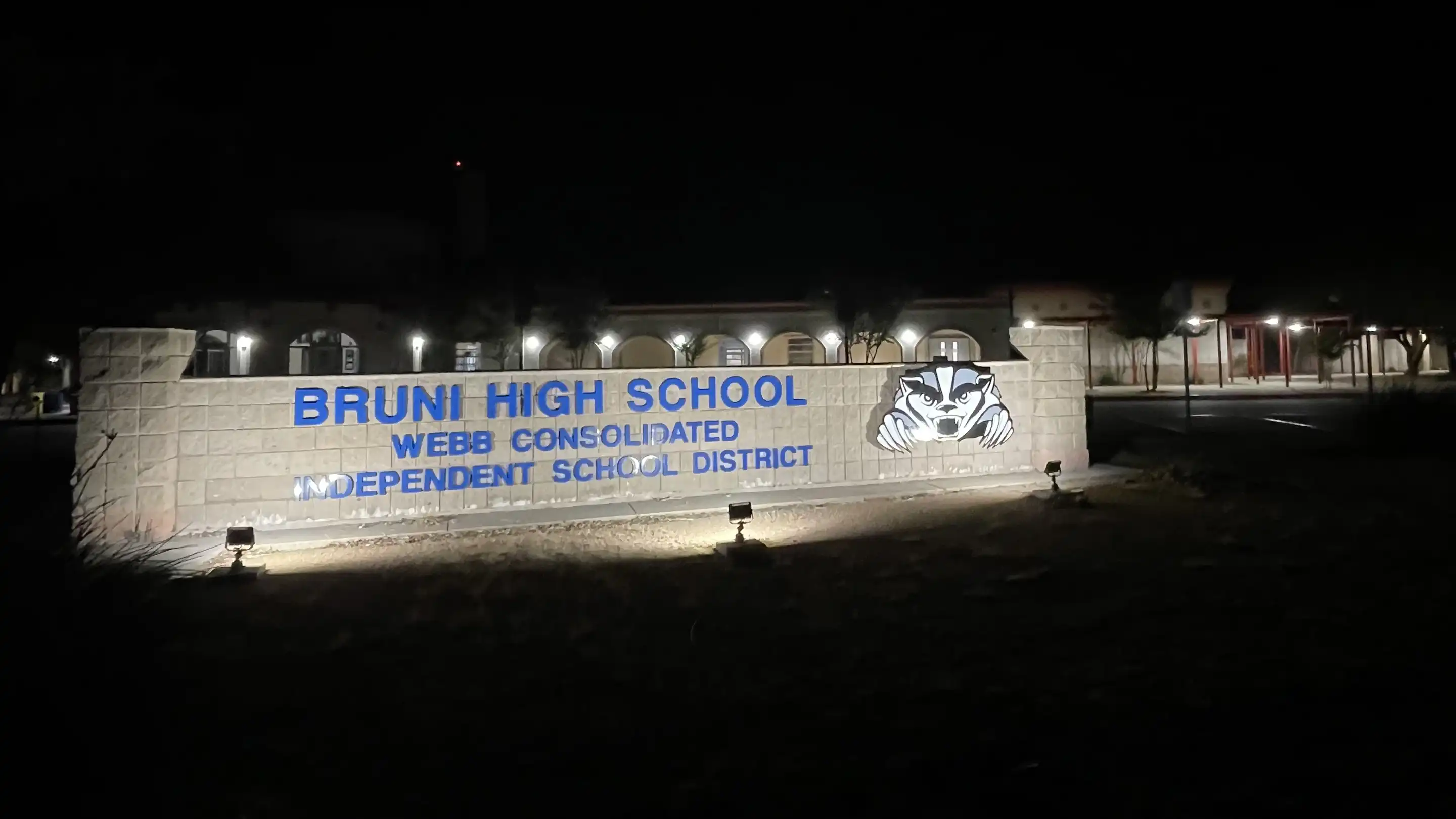
The Active Attack Integrated Response (AAIR) training held on July 10th and 11th was a remarkable display of dedication from both instructors and participants. Beginning as early as 3 am, instructors traveled from as far as Harlingen to arrive at the Webb CISD facilities before dawn. Their preparation set the stage for a day of progressive learning and skill-building.
The day commenced with classroom instruction, where theoretical knowledge was imparted. As the afternoon rolled in, the training elevated to practical drills and exercises designed to test performance under pressure. The use of blank ammunition and other tactics were employed to increase stress levels, replicating real-life emergency scenarios.
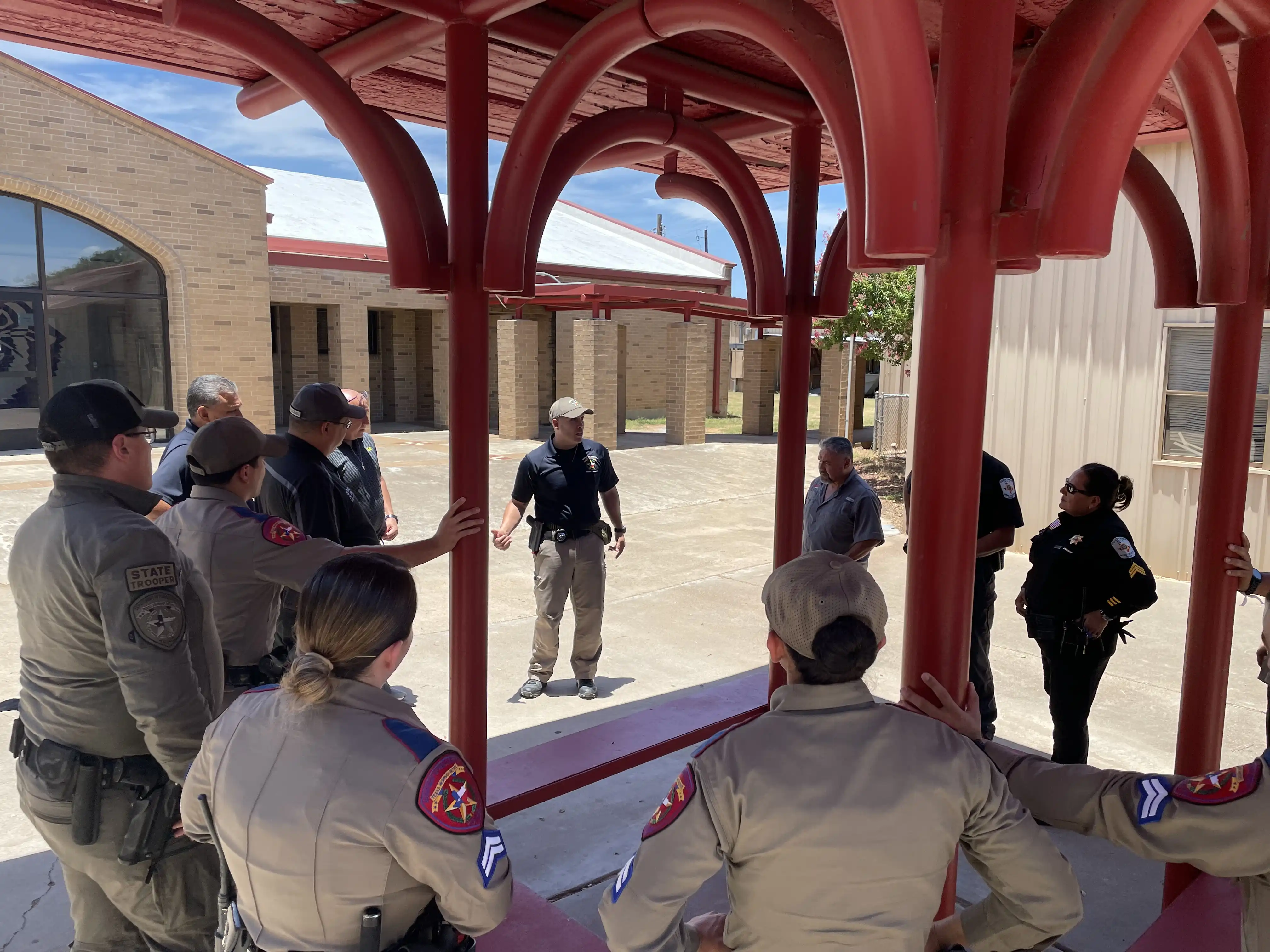
Despite the remote location, which necessitated brief lunch breaks and self-brought sack lunches, the energy and enthusiasm remained high throughout the day. The training saw the experienced instructors, along with guest instructors like Harlingen Deputy Fire Chief Darrell Loftus, guide the participants through various exercises, imparting invaluable active attack response skills.
Post two days of rigorous training, the participants returned to their regular duties, their skills honed and refreshed. They departed better equipped to serve their communities, embodying the spirit of readiness that is foundational to their roles. This successful event underscores the importance of dedicated training and stands as a testament to the unwavering commitment of our emergency services personnel.
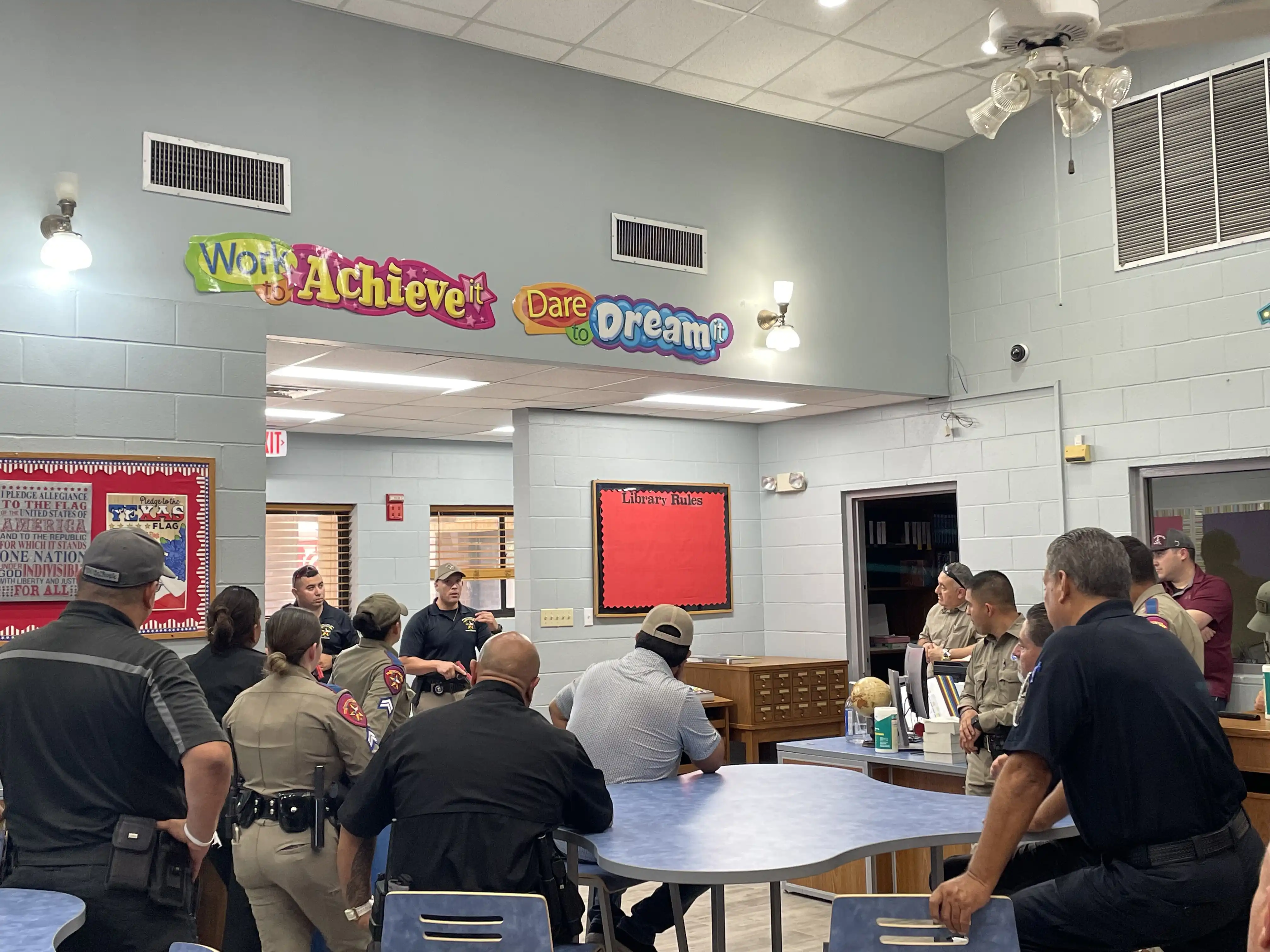
One of the most rewarding aspects of this comprehensive training program is the knowledge that all the participating agencies have not only become more acquainted with one another, but also developed a profound understanding of how to effectively collaborate. This newfound camaraderie and shared purpose will undoubtedly foster a culture of cooperation, inspiring them to join forces more frequently in pursuit of their common objective: safeguarding the well-being and security of their communities.
In Bruni, Texas, a handful of key agencies work in tandem to respond to various emergencies and ensure the safety and wellbeing of the community.

Webb County Constable, Pct. 3
Working closely with the Sheriff's Office, the Constable's office carries out a variety of law enforcement functions. These include serving warrants and civil papers, enforcing local and state laws, and providing additional support during emergencies.
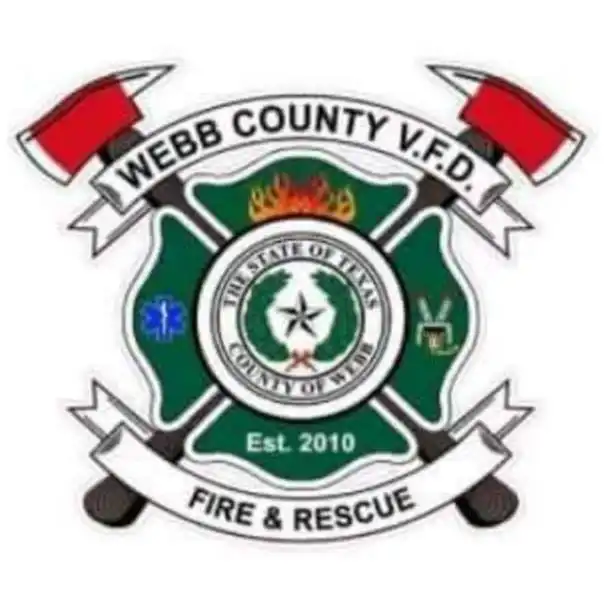
Webb County Fire Department
This department plays a crucial role in safeguarding the community against fire-related incidents. Their responsibilities extend beyond firefighting to include fire prevention education and emergency medical services.
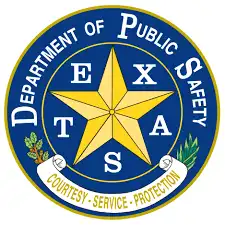
Texas Department of Public Safety (DPS)
The Texas DPS helps maintain law and order across the state, including in rural areas like Bruni. They provide a variety of services, including highway patrol, criminal investigations, and emergency management.

Webb CISD Police
As part of the school district, Webb CISD Police are responsible for ensuring the safety of students, staff, and school property. They work closely with other local agencies, contributing to a comprehensive approach to community safety.
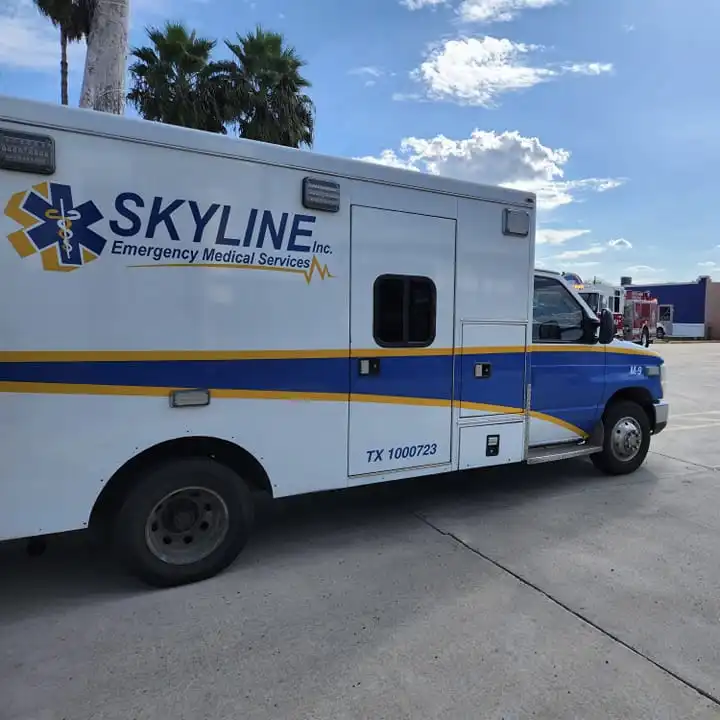
Skyline EMS
Skyline EMS provides both emergency and non-emergency ground ambulance services in the Bruni, TX area. They are committed to transporting patients promptly, safely, and with the utmost compassion and dignity, making them a reliable medical support system in the community.
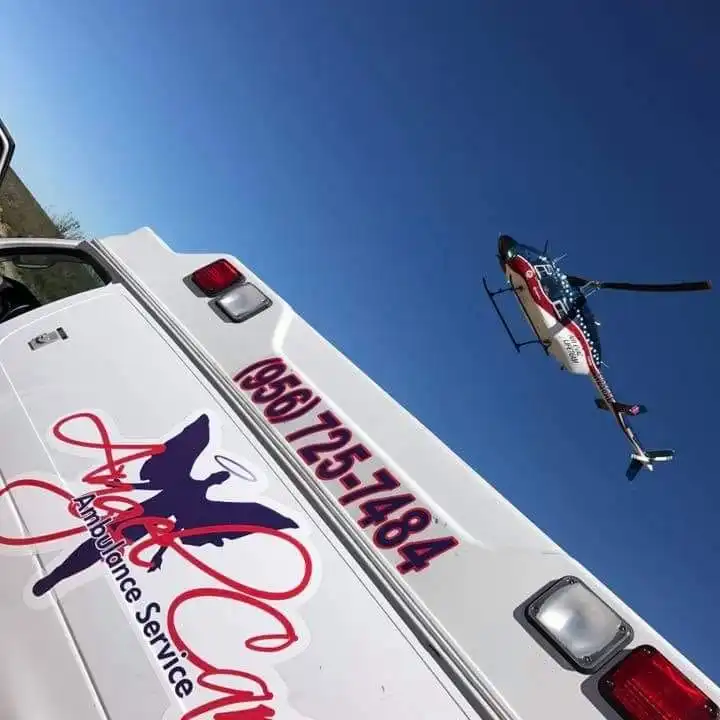
Angel Care EMS
Angel Care EMS is the primary 911 provider for Webb County which includes Bruni, TX. Known for their professionalism and dedication, they offer swift emergency medical services, ensuring the safety and well-being of the residents in the area.
Together, these agencies form a comprehensive network of protection for the people of Bruni, Texas. They not only respond to emergencies but also work proactively to prevent incidents and ensure the ongoing safety of the community.
Enhanced Communication: When multiple agencies train together, they learn each other's terminologies, protocols, and procedures. This shared understanding enhances communication during real-world emergencies, minimizing misunderstandings and ensuring that everyone is on the same page. Seamless communication can save precious time during an emergency when every second counts.
Improved Coordination: Joint training enables different agencies to understand each other's roles and responsibilities better. They learn how to effectively coordinate their efforts and resources in a crisis situation, leading to a more efficient and organized response. This improved coordination can help avoid duplication of efforts and ensure that resources are utilized to their full potential.
Reduced Response Times: By training together, agencies can streamline their processes and eliminate any potential bottlenecks in their response strategy. This efficiency can significantly reduce response times, enabling them to reach the scene of the emergency faster and potentially save more lives.
Trust Building: Training together also helps build trust and mutual respect among different agencies. This trust can be invaluable during an emergency, fostering a sense of unity and cooperation that can help overcome challenges more effectively.
Shared Learning and Continuous Improvement: Joint training provides an opportunity for agencies to learn from each other's experiences and expertise. They can share best practices, innovative strategies, and lessons learned from past incidents. This shared learning can lead to continuous improvement in their emergency response capabilities.
Multi-agency training is critical for enhancing emergency response efforts. It fosters more effective communication, coordination, and cooperation among different agencies, leading to faster, more efficient responses that can save lives and protect communities like Bruni, Texas.

Luis T.J. Tinajero, the Chief Deputy of the Webb County Constable's Office, plays a key role in safeguarding the community. Through his leadership and dedication, and through his lead-by-example participation in training like these and others, he ensures the safety, security, and well-being of every individual within his jurisdiction. Rather than simply send subordinates to attend, Chief Tinajero himself attends these vital training for the betterment of his community.
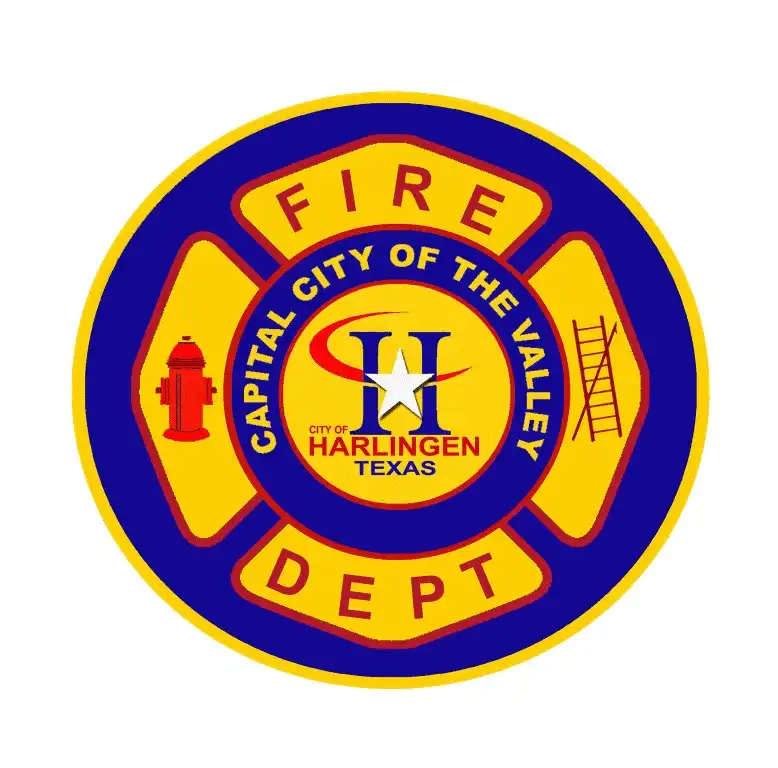
Darrell Loftus, Battalion Fire Chief at Harlingen Fire Department, demonstrated his commitment to education and training through his recent endeavors. He made the significant effort to travel to Bruni, a testament to his dedication to enhancing the skills and knowledge of firefighters far and wide. There, he lent his expertise to teach the Active Attack Integrated Response (AAIR) training, imparting valuable lessons to those in attendance.

Assistant Fire Chiefs A. Stahl and F. Martinez, with their combined experience spanning over 60 years, made an invaluable contribution to the Active Attack Integrated Response (AAIR) training. Their vast knowledge, ranging from fieldwork to administration, greatly enriched the training and offered immense benefits to both their community and fellow participants. This participation reiterates the importance of continuous learning and readiness in enhancing public safety and emergency response capabilities.

Chief Ramiro Garza of the Webb CISD Police was instrumental in facilitating the ALERRT training event in Bruni. His effective coordination and dedication to assisting with training needs were key in ensuring the success of the event. His contributions not only helped in the smooth running of the training but also underlined the importance of community collaboration in enhancing public safety.
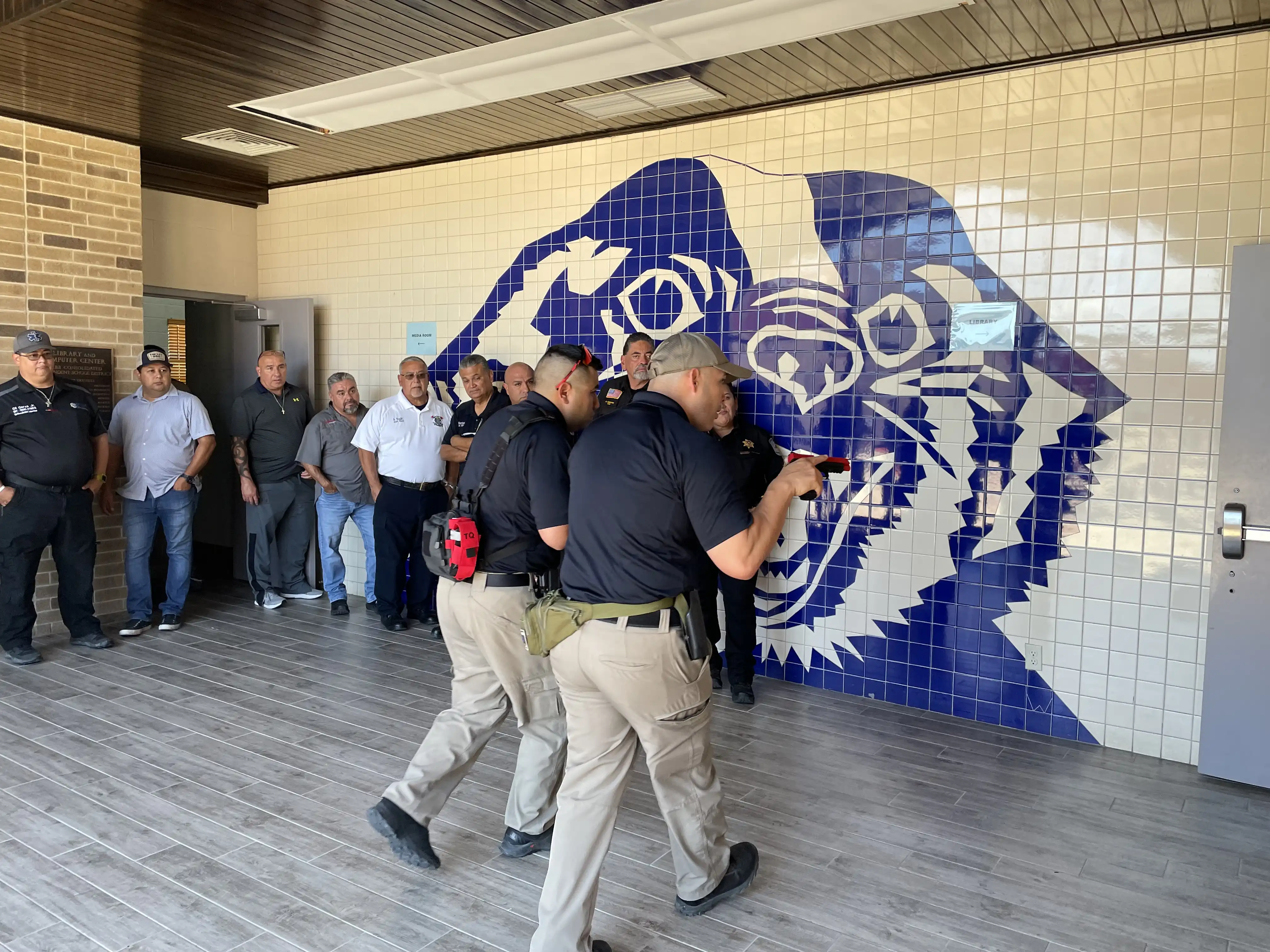
AAIR Instructors, Nathan Rodriguez (right) and Efrain Palomo (left), demonstrating tactics.
American Police Training serves a vital role in streamlining the process of training registration and management for law enforcement agencies across the United States. While it doesn't provide the training itself, its platform is instrumental in facilitating multi-agency cooperation and extending the reach of training programs to rural areas like Bruni, Texas.
The platform hosts training registration, making it easy for different agencies such as the Webb County Sheriff's Office, Webb County Constable, Webb County Fire Department, Texas DPS, and U.S. Border Patrol to enroll their personnel in relevant training programs. By centralizing this process, American Police Training promotes participation from multiple agencies, fostering an environment of shared learning and collaboration.
In addition to hosting registrations, American Police Training also provides free training management tools. These tools help agencies to efficiently manage their training schedules, track progress, and maintain records. By simplifying the administrative aspects of training, these tools allow agencies to focus more on the actual training content and its effective implementation.
For rural areas, American Police Training's online platform makes training programs more accessible. Law enforcement officers can register for training programs without needing to travel long distances. This convenience is especially beneficial for rural areas where travel can be time-consuming and costly.
Moreover, the platform’s ability to host a wide range of training programs means that rural law enforcement agencies can access specialized training tailored to their unique needs and challenges. This could include modules on rural policing, border security, or any other topic relevant to their specific context.
In essence, while American Police Training may not directly provide training, its platform is a crucial resource for law enforcement agencies. It facilitates multi-agency training, promotes efficient training management, and helps make high-quality training programs accessible to all agencies, including those in rural areas.
The Advanced Law Enforcement Rapid Response Training (ALERRT) program plays a vital role in preparing law enforcement agencies in Bruni, Texas to effectively respond to active shooter situations and other high-risk incidents. By providing specialized, research-based training, ALERRT equips officers with the necessary skills and knowledge to protect their communities during emergencies.
In rural areas like Bruni, where geographical distances and limited resources can pose challenges, the importance of ALERRT is even more pronounced. The program helps bridge the gap between rural and urban law enforcement agencies, ensuring that all officers, regardless of their location, have access to advanced training.
Looking ahead, the potential growth and implications of such training initiatives are significant. As these programs continue to evolve and expand, they can provide rural law enforcement agencies with an even broader range of training options tailored to their specific needs and challenges. This could include training on emerging threats, new technologies, and innovative response strategies.
Furthermore, as more rural law enforcement agencies participate in programs like ALERRT, we can expect to see enhanced collaboration and coordination among different agencies. Joint training fosters mutual understanding and respect, which can significantly improve communication and cooperation during real-world emergencies.
In conclusion, the ALERRT program in Bruni, Texas is not only vital for enhancing the capabilities of local law enforcement agencies but also holds promising potential for the future of rural law enforcement training. Its continued growth and evolution will help ensure that rural law enforcement officers are always prepared to respond effectively to emergencies and protect their communities.